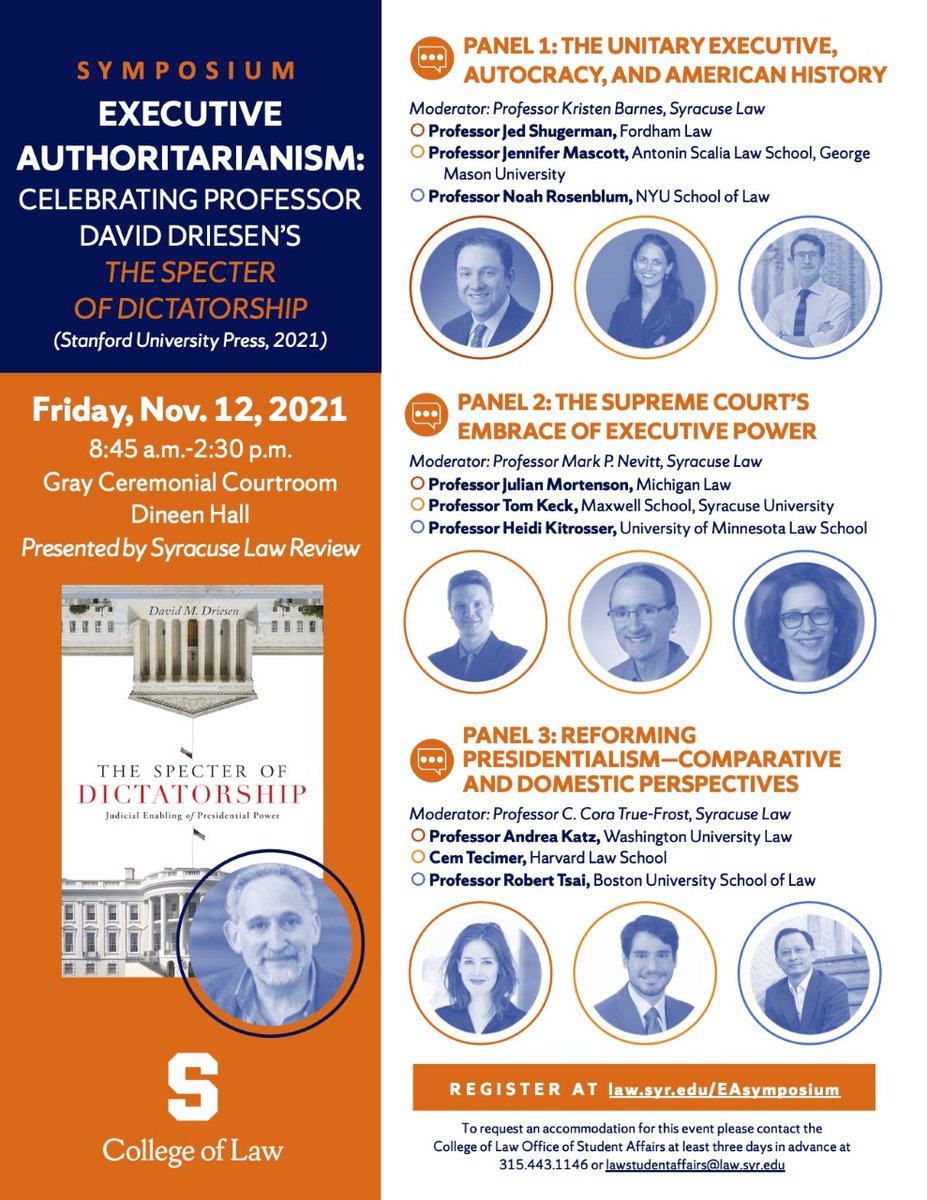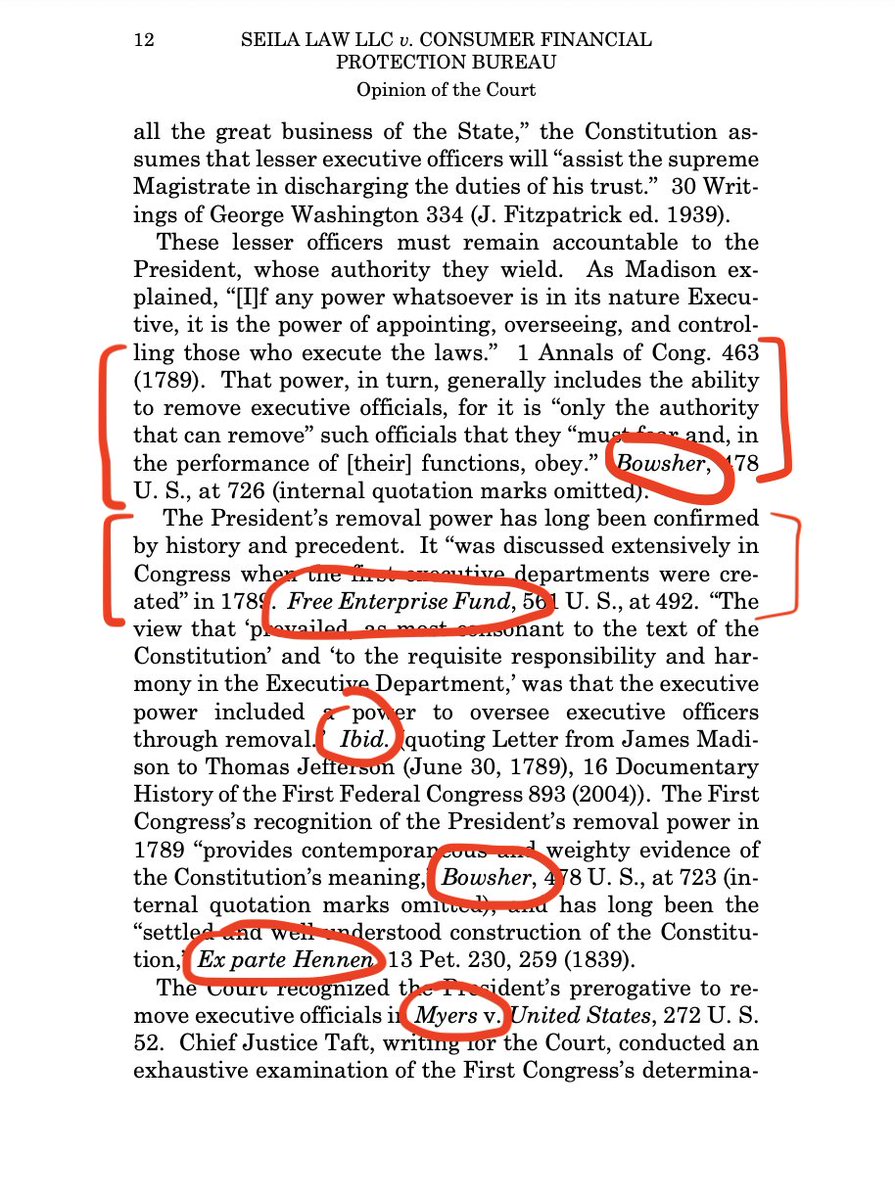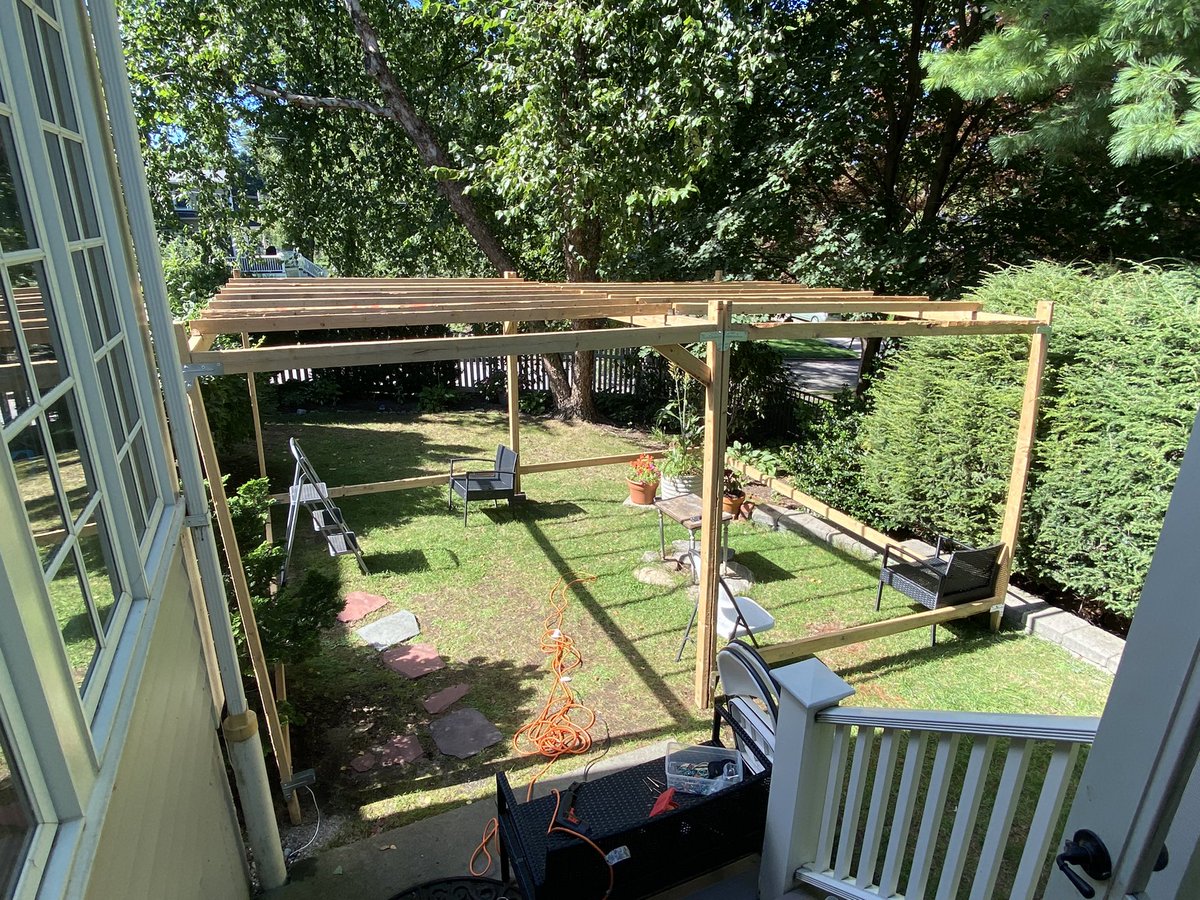
I'm looking forward to discussing David Driesen's outstanding new book w/ @jennmascott & @narosenblum tomorrow!
@dmdriesen's subtitle: "Judicial Enabling of Presidential Power."
My comment: "The Bipartisan Enabling and En-Fabling of Presidential Power"
@dmdriesen's subtitle: "Judicial Enabling of Presidential Power."
My comment: "The Bipartisan Enabling and En-Fabling of Presidential Power"

Thanks to @DorfmanDoron & the Syracuse Law Review for organizing. Our moderator is Kristen Barnes.
Panel #2: The Supreme Court's Embrace of Executive Power.
@jdmortenson @tmksyracuse @heidikitrosser
@dmdriesen's book puts the Roberts Court in a disturbing global context.
Panel #2: The Supreme Court's Embrace of Executive Power.
@jdmortenson @tmksyracuse @heidikitrosser
@dmdriesen's book puts the Roberts Court in a disturbing global context.
Panel #3: "Reforming Presidentialism: Comparative and Domestic Perspectives"
@ascoseriakatz @robertltsai & Cem Tecimer
@coratruefrost moderating
Driesen on Poland, Hungary, Turkey & "democracy-ending unitary executives."
An alarming specter, indeed.
@ascoseriakatz @robertltsai & Cem Tecimer
@coratruefrost moderating
Driesen on Poland, Hungary, Turkey & "democracy-ending unitary executives."
An alarming specter, indeed.
For context and documentation, this morning I’ll be taking about this episode in the Trump OLC in 2019 participating in the Ukraine cover-up:
https://twitter.com/jedshug/status/1341051089039335431
This is my thread from Sept 2019 as the OLC memos were declassified. Engel’s memo was changed to delete a highly problematic footnote that gave a ridiculous explanation for covering up the whistleblower against the statutory trigger for sending his report to Congress:
https://twitter.com/jedshug/status/1177292865363501057
Here is my comparison of the first released edited OLC memo (left) deleting the key footnote, vs. the original memo with the problematic footnote providing a bad reason for covering up the whistleblower:
https://twitter.com/jedshug/status/1341066136453046275
• • •
Missing some Tweet in this thread? You can try to
force a refresh








